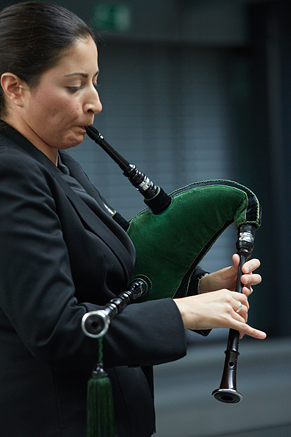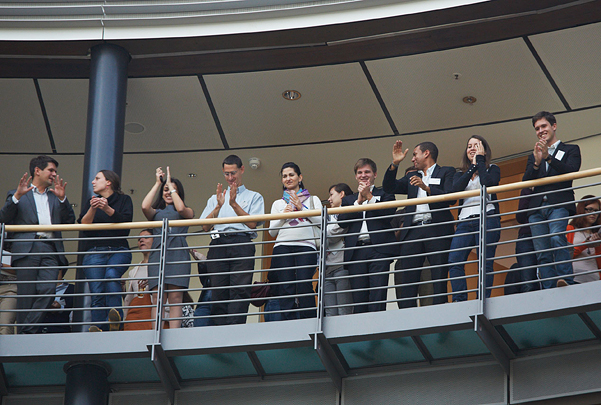At the end of September 2012 the Allianz Cultural Foundation hosted its third Alumni Academy in Berlin. The seventy delegates from 17 countries were drawn from former participants in one of the Summer Academies that the Cultural Foundation offers jointly with 13 European universities at the Allianz Group Management Institute.
They included an advisor to the President of the European Parliament and the head of the European Commission's Social Media Department, as well as Allianz alumni working for NATO and the European Employers' Association.
The program the alumni had designed with the support of the Foundation included debate and discussion on entrepreneurial thinking and social commitment while the main focus of the Academy's second day was the European financial crisis and European integration.
This discussion panel brought together a representative of the German Finance Ministry, Martin Heipertz, Dr. Kay Müller, Chief Financial Officer (CFO) of Allianz Real Estate, Pythagoras Petratos, a Professor at Oxford University and a Greek national, and the journalist Marcus Walker from The Wall Street Journal. However, since this panel was convened under Chatham House Rules, none of the panelists could be quoted by name.
One participant strongly criticized Germany's attitude towards the debt crisis, claiming that neither the media nor politicians clearly explain to the German population exactly how much Germany is benefitting from Europe.
By contrast, another participant emphasized the catalytic effect of the financial crisis that had enabled reforms to be pushed through in a very short space of time - something that no-one had previously even thought possible.
One of the panelists compared the prerequisites of successful political reform with those of a successful company, identifying a great many similarities. Unless stakeholders are ready for change, he argued, any restructuring efforts are doomed to fail.
However, an expert on Greece had not yet been able to detect the mental shift that would be required in this respect. At the same time he pointed out that in Greece there are certain social areas and companies that work efficiently, but that are not supported in any way.

